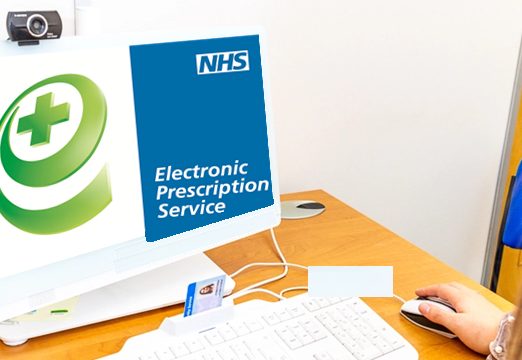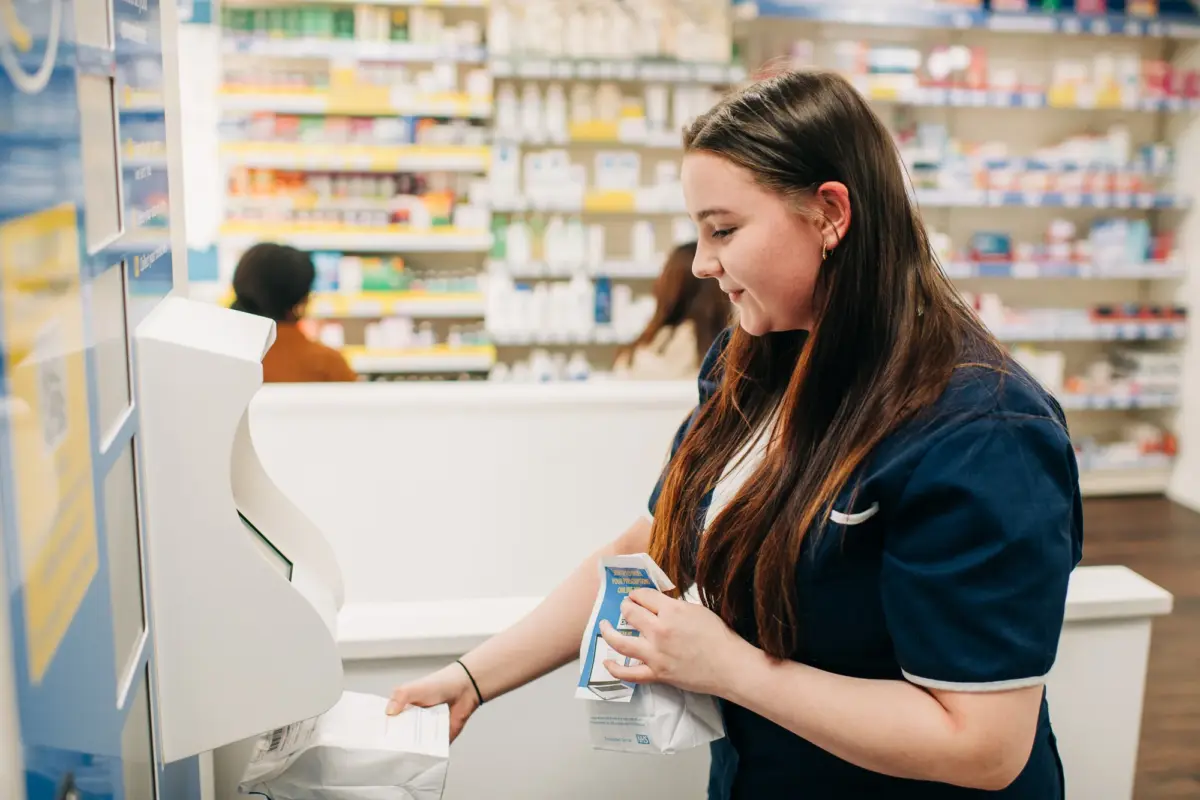CPAF (Community Pharmacy Assurance Framework)
Published on: 9th July 2013 | Updated on: 4th November 2025
NHS England regional teams have responsibility for monitoring the provision of Essential and Advanced services. Arrangements for monitoring locally commissioned services may be set out in local contracts or Service Level Agreements.
NHS England’s regional teams use the Community Pharmacy Assurance Framework (CPAF) to monitor community pharmacy owners’ compliance with the terms of the Community Pharmacy Contractual Framework (CPCF).
As a result of NHS regulations introduced at the end of 2020, completion of CPAF is now a requirement of the Terms of Service. Therefore, pharmacy owners must complete the screening questionnaire within the required time period each year and, if required, the full CPAF questionnaire.
Community Pharmacy Assurance Framework (CPAF) Full Questionnaire for 2025/26 – is now closed.
All community pharmacies in England were asked to complete 10 screening questions as part of NHS England Community Pharmacy Assurance Framework (CPAF), and some contractors were asked to complete the full CPAF questionnaire.
The full version of the CPAF questionnaire is available on the NHS Business Services Authority (NHSBSA) website.
Now the full CPAF questionnaire has closed, NHS England will decide which pharmacies to visit as part of the CPAF process. A visit is more likely if a pharmacy has been selected to complete the full CPAF questionnaire, but the completed questionnaire does not provide NHS England with sufficient assurances of compliance and quality under the contractual framework.
Click on a heading below for more information.
The CPAF was developed by NHS Primary Care Commissioning (PCC) as a toolkit to assist Primary Care Trusts in assessing compliance and quality under the CPCF. The first toolkit was published in September 2005 as the CPAF and updated versions were produced by PCC, working with Community Pharmacy England, over the subsequent years.
CPAF is made up of two parts – a pre-visit questionnaire which is completed by the pharmacy owner before the monitoring visit and a section used by the commissioner during a monitoring visit.
In late 2020 new NHS regulations were laid to introduce changes to the Terms of Service for pharmacy owners. This included requiring pharmacy owners, on request, to send NHS England any information that could be requested at an inspection, such as a duly completed questionnaire (e.g. the CPAF screening questionnaire or full questionnaire). See Regs reminder (#11): NHSE&I inspections and access to electronic information for more information.
The 2024/25 CPAF screening questionnaire is available for completion between 1st July 2024 and midnight on 31st July 2024.
The short screening questionnaire consisted of 10 questions. Pharmacy owners who use the NHS Business Services Authority (NHSBSA) Manage Your Service (MYS) portal were required to complete the questionnaire on the portal. Pharmacy owners who were not signed up to MYS will be able to complete the questionnaire online and will be contacted separately.
The questions are available on the NHSBSA website.
Once completed, NHS England will select a small number of pharmacies for a monitoring visit and/or to complete the full CPAF questionnaire.
Community Pharmacy England published a Briefing to provide guidance on the screening process.
Read the 2023/24 briefing (This is still relevant for 2024/25)
The 2022/23 briefing is still relevant and can be found here.
Community pharmacies will have received information and instructions on how to complete the screening questionnaire either via email from the NHSBSA or from their own Head Office. Pharmacy owners were advised to contact NHSBSA by emailing pharmacysupport@nhsbsa.nhs.uk if they had not received details of the questionnaire by Tuesday 2nd July 2024, or if they had any problems or queries completing the questionnaire.
Pharmacies may be selected for the full CPAF questionnaire if, for example, they did not complete the screening questions or if there are concerns about the pharmacy relating to patient safety. Some pharmacies may also be selected to validate their answers to the screening questions.
Selected pharmacies will be notified via email from NHS Business Services Authority. Pharmacies will need to to complete the full CPAF questionnaire on the Manage Your Service (MYS) website if they already have access, if not members will be contacted separately via email.
The full version of the CPAF questionnaire, which may be helpful to view before starting to complete it, will be available on the NHS Business Services Authority (NHSBSA) website.
If you have a query about accessing or using this questionnaire, please email pharmacysupport@nhsbsa.nhs.uk, including your pharmacy ODS/F code and pharmacy contact details.
NHS England will decide which pharmacies to visit as part of the CPAF process. A visit is more likely if a pharmacy has been selected to complete the full CPAF questionnaire, but the completed questionnaire does not provide NHS England with sufficient assurances of compliance and quality under the contractual framework.
Within the Terms of Service, a pharmacy owner must allow persons authorised in writing by NHS England to enter and inspect their pharmacy at any reasonable time for the purpose of ascertaining whether or not the pharmacy owner is complying with the requirements of their Terms of Service. Where the pharmacy owner requests it, the LPC can be present at the inspection.
Any visit should be planned carefully so as not to impact negatively on the day-to-day running of the pharmacy. Patients of pharmacies do not require appointments therefore any inspection teams should not necessarily expect to have the pharmacist devoted to them during any visit, nor should any inspection disrupt the concentration of pharmacy staff in the provision of care to patients.
The Essential service specifications require the pharmacy to have appropriate standard operating procedures (SOPs) for dispensing, repeat dispensing and support for self-care.
Monitoring compliance requires only the determination of whether the pharmacy has an appropriate SOP. It does not require NHS England to carry out a detailed analysis of the content of the SOPs. Indeed, it would be unwise for NHS England to carry out any detailed examination, because it will be unable to determine what is appropriate for the individual pharmacy concerned, and any shortcomings not identified, or suggestions made which themselves cause problems in delivery of the services, could lead to NHS England itself being involved in litigation.
For this reason, the most appropriate way for NHS England to determine whether the pharmacy has an appropriate SOP is to ask to see it during a monitoring visit (but without reading it in detail), then to ask appropriate members of staff suitable questions about their procedures to establish the level of understanding and compliance with the SOP.
As part of the NHS Terms of Service for community pharmacies in England, there are various requirements for pharmacies to keep records of advice, interventions and referrals.
What sort of records need to be kept?
Records need to be kept in relation to:
Essential service |
Requirements |
| Dispensing | Pharmacies need to keep and maintain records in appropriate cases, of advice given and any interventions or referrals made. |
| Repeat dispensing | Pharmacies need to keep and maintain records of clinically significant interventions in cases involving repeatable prescriptions. These will include instances where:
|
| Public Health |
Prescription linked interventions: Where a person using a pharmacy presents a prescription and it appears to the pharmacist or staff that the person:
The pharmacy must, as appropriate, provide advice to the person with the aim of increasing the person’s knowledge and understanding of the health issues which are relevant to that person’s personal circumstances. In appropriate cases, the pharmacy must keep and maintain a record of the advice given in a form that facilitates:
|
| Signposting |
The pharmacy must, in appropriate cases, keep and maintain a record of any information given or referrals made in relation to signposting. Signposting includes:
The records must be in a form that facilitates:
|
| Self- care | In order to minimise the inappropriate use of health and social care services, pharmacies are required to support patients by providing advice where appropriate to help the patient manage a medical condition. The support may include advice:
The pharmacy must, in appropriate cases, keep and maintain a record of any advice given and of any drugs supplied when the advice was given. The record must be in a form that facilitates:
|
What is the reason for keeping the records?
The Terms of Service require records to be kept ‘where appropriate’ or when ‘clinically significant’ so the pharmacy will need to consider for each provision of advice, intervention, or referral whether a record should be kept. The record will be of no value if it is made just for the sake of making it – it must be linked to improving patient care, maintaining high quality service from the pharmacy or in some cases managing risk. For example records enable:
- the pharmacy to ensure that there is continuity of care e.g. a particular brand of medicine is supplied for a patient, allergies to particular excipients, medication is supplied with larger label fonts or in specific containers etc;
- other pharmacists and staff to understand what you discussed with a patient if you are not working in the pharmacy the next time the patient comes in to the pharmacy; and
- you to follow up on advice given or treatment recommended to enhance patient care particularly if you would want to double check that a patient had taken on board important advice.
Another reason to keep records is to manage risk. It is important to keep records of anything that concerns you in case you need to refer back to it in the future.
Where should we keep the records?
The records should be kept in the best way for your pharmacy that enables all pharmacy staff to make use of them to provide a high quality of service for the people who use your pharmacy.
This is most likely to be somewhere on your PMR ideally linked to the patients dispensing record.
If the records are kept separately in a book or a log for example, you will be less likely to be able to use them for the purposes described above.
NHS England may wish to discuss records of advice, interventions and referrals with you as part of a contract monitoring visit. It is important that you can describe what you do and provide some evidence.
How should we decide which pieces of advice and which interventions to record?
Pharmacies are unlikely to be able to record all the advice, interventions and referrals they make and indeed there is little benefit in recording every single piece of advice given. In deciding what to record think about:
- Risk management – is there something that has worried you?
- Have you made a significant difference to the patient?
- Is it something that another pharmacist or member of staff might need to know about the next time the patient visits?
- Is it something that you may need to refer back to in the future?
Who should make the records?
Any member of staff can make the records and this may be covered in your SOPs. It will depend where you make the records and how your pharmacy works.
It may be more likely that the pharmacist or other staff in the dispensary makes records in relation to dispensing and repeat dispensing. For public health, signposting and self-care, there could be a whole team approach.
How many records should we make?
The number of records will vary from pharmacy to pharmacy. Experience has shown that pharmacy recording of advice, interventions and referrals have varied significantly and it is likely that patient care could be improved if more records were kept, which could then be acted upon at a later date. There is no specified number of records required by the Terms of Service because each pharmacy will be different, but if you are giving advice every day, you are having to intervene several times a week and you find that referrals back to the GP are frequent, then your procedures which should encourage consideration of every incident to determine whether a record is needed, could lead to more records being kept than previously.
For more information on this topic please email regulations.team@cpe.org.uk












